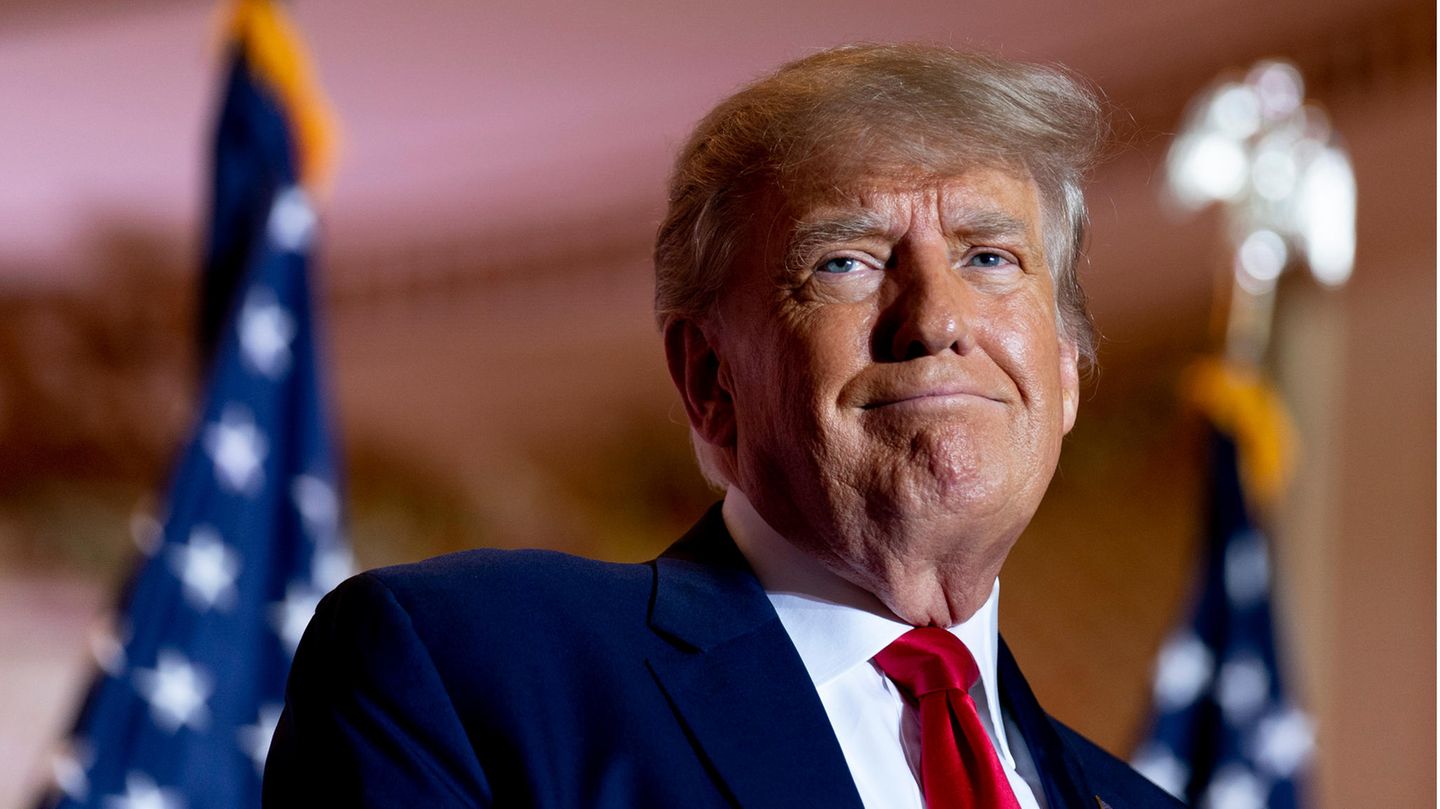Donald Trump wants to do what only Grover Cleveland has managed to do so far: return to the White House as US President after one victory and one defeat. Can he learn from his predecessor?
Donald Trump could make everything even less understandable. Politically anyway, that’s to be expected after his presidency, which was characterized by malice, hatred and hate speech. His re-election would reverse the impression that this episode could have been just an aberration of history.
Of course, his second term would also mess things up organizationally. Should Trump actually move into the White House again, the question arises: How many Presidents of the United States would he actually be?
Because if you take it very seriously, you could argue: Trump wasn’t the 45th President of the United States at all – just the 44th person to hold the office.
The reason for this has a name: Grover Cleveland. He is the only US President in history who has achieved what Trump is now striving for. Cleveland was elected president, lost re-election, then ran again and won—making him both the 22nd President (1885-1889) and 24th President (1893-1897) of the United States.
And so the consequence of a second Trump term would be, apart from the political consequences, another turning point in the counting: Trump would then be the 47th President of the United States, but only the 45th incumbent.
It’s not the only bon mot blowing through American newspapers these days when it comes to Trump’s ambitions. After all, with his candidacy, he may be treading on historical ground.
The (few) similarities between Donald Trump and Grover Cleveland
Should the Republicans choose him as their presidential candidate for a third time, Trump would join Franklin D. Roosevelt or Richard Nixon, who could boast of a candidacy hat-trick. Likewise Cleveland, who was the only one from the presidential ranks who was able to move back into the White House after moving out.
Otherwise, Trump, a Republican, and Cleveland, a Democrat, were quite different personalities. Three examples that the US broadcaster has compiled:
- Trump is known for dismissing scandals. He denied paying hush money to women who claimed to have had affairs with him. Although his former attorney, Michael Cohen, who arranged the payments, confirmed this. Cleveland, on the other hand, admitted having an affair in 1884 after repeated criticism from Republicans and admitted possibly having fathered an illegitimate child. During the election campaign, he made a virtue of it and called for honesty.
- . To this day, he claims not to have lost the 2020 presidential election, which is proven nonsense. While Cleveland even held the umbrella of his superior opponent Benjamin Harrison (1889 to 1893) when he took his oath of office in rainy weather.
- Trump is one of the oldest US Presidents. He was 70 years old when he became President. Should he move into the White House again in 2025, he would be 78 – the second-oldest president in US history after incumbent Joe Biden, who celebrates his 80th birthday on Sunday. Cleveland was a young president, first taking office at 47 and winning re-election at 55. He died at the age of 71 when Trump was in his first half of office.
But despite all the differences, Trump and Cleveland also have some similarities, as she also notes, with some amazing parallels in their presidency.
Thus the 1888 election (in which Cleveland lost) resulted in a rare discrepancy between the Electoral College – – and the Popular Vote – i.e. the total votes. At that time, too, the divergence was an expression of the fact that a political rift ran through the country.
At the time, Cleveland received more of the total votes, but his opponent Harrison was able to unite a majority in the electoral body – and that is ultimately decisive. It was similar, but different, with Trump: he received significantly fewer votes in both presidential elections Popular Vote – first against Hilary Clinton (2016), then against Joe Biden (2020) – was 2016 dated Electoral College but elected president.
“During the three presidential elections in which Cleveland ran, the country was deeply divided,” historian Michael Beschloss told the New York Times. “If you look at these three elections as a phenomenon where the country was divided roughly half-and-half, you may see the same phenomenon with Trump.”
Additionally, in the four years between his two terms in office, Cleveland “acted like a Trump of his time campaign-wise,” Alexis Coe, a historian specializing in US presidents, told the newspaper.
He gave nearly a dozen speeches a year, bucking the tradition of letting his party go on even though he had lost. Although Cleveland has not focused on slandering his successor in office in his many appearances (while Trump is practicing constant excitement). Especially since Cleveland, as political scientist Martha Joint Kumar from Towson University points out, has “accepted his defeat,” unlike Trump.
“He did it out of boredom”
No further questions, except why did Cleveland run for a third time? Joshua Zeitz, author and journalist at , sums it up: “He did it out of boredom.”
In (temporary) retirement, Cleveland and his wife moved to New York City, where he passionately played the card game cribbage with friends, visited theaters and restaurants – restaurants in particular, Zeitz notes, Cleveland weighed around 136 kilograms. It was also during the political cooldown that Cleveland became a father for the first time and, he is said to have told a confidante, also felt like he had “arrived in the real world” for the first time.
But like many former politicians who gave up the spotlight in exchange for family time, he appears to have found private life not fully fulfilling. At some point, Cleveland, who was always following what was happening in Washington, saw an opportunity to remove the increasingly unpopular President Harrison from office. The Rest is History.
Another similarity with Trump? More likely, the motivation for his third candidacy stems less from boredom than from sheer desire for revenge – on President Biden, who allegedly stole the election from him, and the Republicans, too.
Trump is at least a defiant – but no Grover Cleveland.
Sources: , , ,
Source: Stern
David William is a talented author who has made a name for himself in the world of writing. He is a professional author who writes on a wide range of topics, from general interest to opinion news. David is currently working as a writer at 24 hours worlds where he brings his unique perspective and in-depth research to his articles, making them both informative and engaging.




